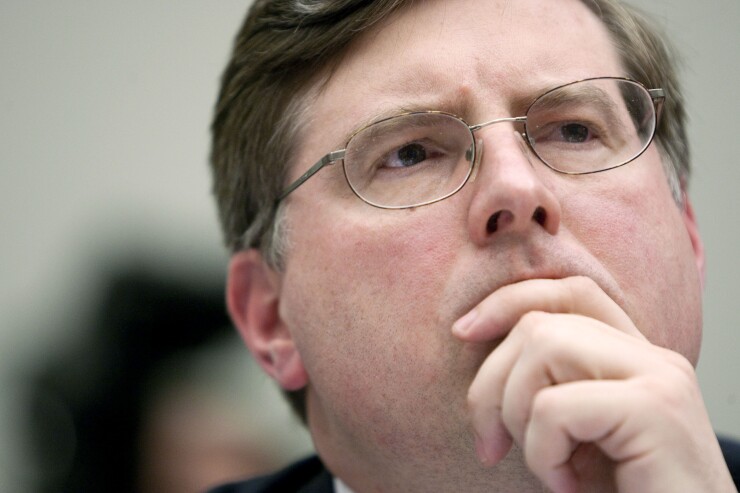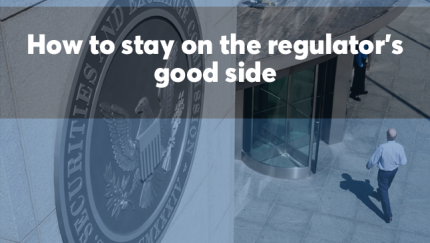SAN FRANCISCO – If President Trump overturns the fiduciary rule, the SEC and FINRA could fill in the regulatory gap, according to FINRA CEO Robert Cook.
Cook, speaking at the annual conference of the Financial Services Institute, said the SEC would be the most appropriate agency to implement a new regulatory standard. And FINRA would hope to play an active role, he said.
The future of the rule, which is expected to begin implementation April 10, is
The regulator plans to ramp up scrutiny of bad brokers and electronic communications, among other new measures.
“We are working every minute of every day to see it delayed, and then replaced,” said FSI CEO Dale Brown in a panel discussion with Cook.

The SEC has been authorized to craft its own fiduciary standard under the 2010 Dodd-Frank Act. However,
In their wide-ranging conversation, Cook spelled out what he saw as FINRA’s role in enforcement of the regulation. He also discussed his goals for FINRA’s next five years.

Brown: What is FINRA’s role in relation to fiduciary duty for all financial advisers?
Cook: We currently do not see ourselves as the examination or enforcement regulator for that [DoL] rule. How we approach it could evolve over time, but it’s not something we’re planning to be the frontline regulator for.
If it goes away … it’s worth stepping back and asking, ‘OK, what is the appropriate approach to this problem?’ Because the problem [of how to address fiduciary standards] isn’t going to go away.
From recommending wrong share classes to cherry-picking allocations, these are the pitfalls advisers should avoid.
I think this is a question that’s best addressed on the federal level, which means by the SEC, if the DoL goes away. If the SEC choses to address it, one of the things I’d like to see us do at FINRA is play a constructive role in that process … to engage with the SEC and share our experience and help to inform that rule-making.
Depending on what direction they go, there may tagalong implications for FINRA’s rules, and for FINRA rulemaking, that would support what they’re doing. [Or there might be implications for] where our rules could potentially be made redundant. We want to be very constructive in making sure we don’t just put a new layer [of regulation] on without thinking of how the existing rule needs to be tweaked, amended, expanded or contracted based on new standards.
Brown: What are your goals for FINRA for the next five years?
Cook: I’d like to see us live up to the promise of how we can be different from the government. We can be effective in ways the government cannot be. We’re going to be rolling out a number of internal reviews to look at our operations and update them. One of them: We’re coming out with a notice, hopefully in the next couple of weeks, about our engagement, our transparency with our members, our stakeholders.
-
The new administration will have two paths it can take to stop the regulation from being implemented.
November 30 -
Will Chief District Judge Barbara Lynn be the first to rule against the regulation? Opponents of a case in Texas federal court have high hopes.
December 16 -
With a deep résumé representing Wall Street firms, Jay Clayton is seen as a business-friendly choice not expected to push major new regulations or ramp up RIA exams.
January 4
It’s really about what does FINRA do today to engage with its members and to provide transparency into our operations? And what can we be doing to be more effective in that regard?
Five years from now, [we will have] gone through a process of self-reflection, of self-assessment, making whatever changes we think are appropriate, so that the next 10 years of FINRA can be effective in protecting investors and promoting market integrity.







